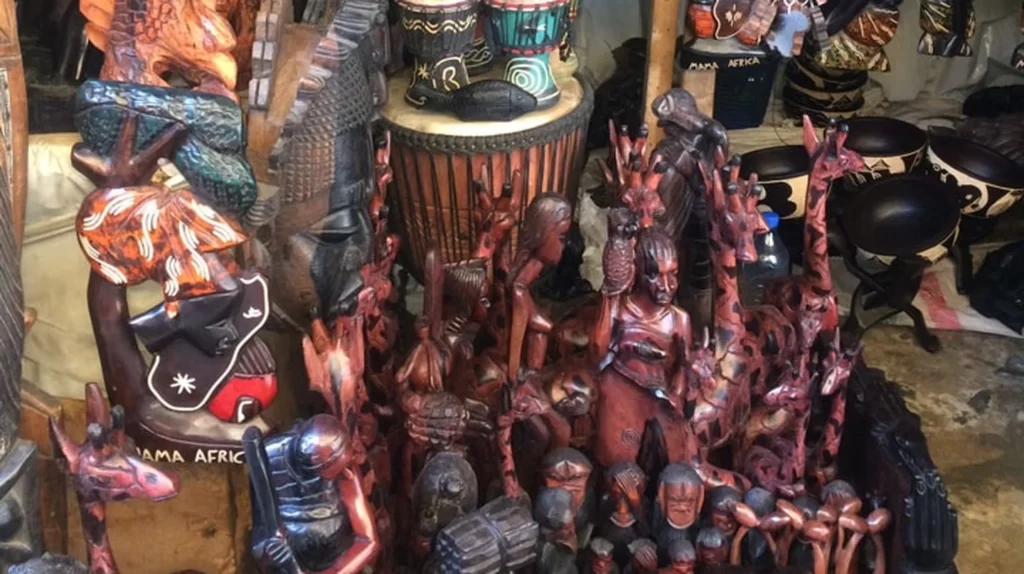The Lekki Arts and Crafts Market (Jakande Art Market) is as unique as the arts, crafts, and other goods and services it offers. It’s tucked away in one corner of the Lekki-Epe expressway, and you won’t find it unless you look for it. Here’s how to get the most out of Lagos’ bustling Lekki Market.
One of the things that will stand out is how well organized the market is, especially in comparison to the topsy-turvy nature that Nigerian markets have, regardless of how well organized they are. However, as with any other market, the best time to shop is early in the morning to avoid the Lekki traffic and crowds in the early afternoons and evenings.

The shops, which resemble an open-air gallery, sell various crafts and arts, each from a different region of Nigeria. From intricately designed chairs, bowls, and metalworks to wooden sculptures, masks, necklaces, and bracelets, there’s bound to be something that catches your eye.
Apart from arts and crafts, the market sells fashion accessories and Ankara fabrics, which are popular these days. Ankara bags, clutch purses, fabric-covered shoes, and even neck pieces, and other accessories are all made from the fabric. Tailors offer on-the-spot services to clients who want to make clothes and other items like pillowcases and curtains.
Wear your bargaining hat
You should bargain for the goods you buy, as you would in any Nigerian market. This not only creates a positive relationship between you and the trader, but it also leaves you feeling satisfied. In most cases, an outrageous amount is proposed as the opening price, but this is heavily dependent on the clothes you’re wearing and the manner in which you carry yourself. The traders will try to con you if you enter the Lekki Market as a newcomer (‘journey-jus’-come’ in the Nigerian parlance). Bring your most charming demeanor and try not to stand out. When bargaining, usually half whatever price the trader first offers. This is usually accompanied by scandalized grunts, but both parties should be able to agree on a fair price in the end.

Don’t be afraid to window shop as much as possible. At the end of the day, this gives you the advantage of being able to obtain a variety of art pieces at reasonable prices. Old pieces are usually kept behind the new ones, so be patient and know what you’re looking for, even if you only have a general idea. You should also approach the situation with an open mind.
Don’t get trapped into buying touristy stuff

Certain crafts are practically mass-produced in order to attract tourists. These arts are typified by defunct Molue buses and men in canoes. It’s not that they’re poorly made; rather, the designs have become overused, and there are more exciting, new arts and crafts being produced all over Nigeria right now. And you can bet that some important items will be hidden away in one of the quaint little shops that populate the Lekki Arts Market.
Splurge on Ankara
You can never have too much Ankara: the fabrics are not only beautiful, but they also come in a range of qualities and can be used for purposes other than clothing. When purchasing fabrics, look up the manufacturer’s name; this will not only help you decide how to bargain but will also give you an idea of what the cloth can be used for. Order pillowcases, bed sheets, and even a summer gown from the market tailors; just don’t give them anything too complicated or you’ll end up with ruined fabric.
Tip: Avoid going to the market during the rainy season; it is usually flooded and difficult to navigate. If you must go, make sure it hasn’t rained heavily in the previous week.


